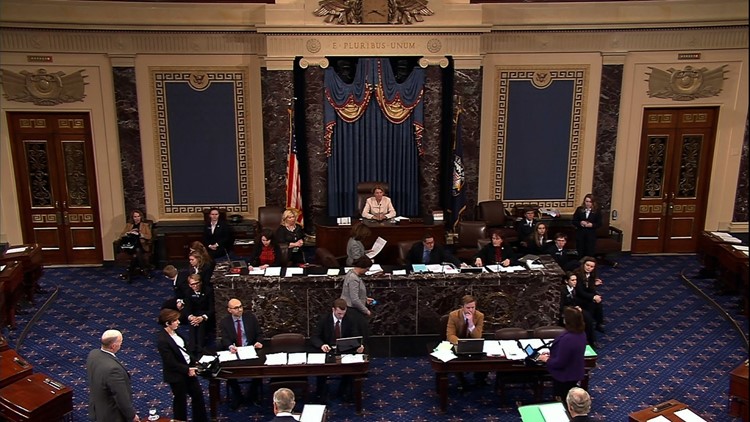(CNN) — The Senate on Friday is voting to see if there’s enough support to advance a stop-gap spending bill with an additional $5 billion for President Donald Trump’s border wall, as Washington inches closer to a partial government shutdown when funding expires for key federal agencies at midnight tonight.
The bill is expected to fail in the Senate, where Democrats have long made clear they would not support new money for the border wall. The question now is what happens next and whether the President and lawmakers can come to an agreement to stave off a partial shutdown. For now, the prospects for a deal look bleak.
Funding for roughly a quarter of the federal government expires at midnight, including appropriations for the Department of Homeland Security, the Department of Justice, the Department of Housing and Urban Development and other parts of the government.
Trump has ratcheted up his rhetoric over the past 24 hours to suggest that he is unwilling to accept anything less than $5 billion for his long-promised border wall. But the $5 billion border wall bill’s failure in the Senate shows the votes aren’t there on the Hill to meet the President’s demand.
Earlier Friday, Trump hosted Senate Republicans to the White House on Friday morning for discussions about the looming shutdown threat, though it was not apparent if any progress had been made during that meeting. Senate Majority Leader McConnell, upon returning to Capitol Hill from his meeting in the White House, said GOP Senators had a “good conversation” with Trump and that “we are going to continue to be talking about a way forward”.
Here’s the dynamics — and the reality
- House Democratic leaders have no political incentive to move and agree to a single cent more in border security money. They’re even stronger in their position because the Senate has passed, unanimously, a bill to fund the government through February 8.
- Trump has decided, with a major, major push from House Republican allies and conservative media commentators, that he’s willing to push this fight over the edge and straight into shutdown. And he’s not exactly being subtle about it.
- McConnell has attempted to give the President room to find his way out of this in every way possible. He’s put his solution on the table — and passed it through the Senate. He’s more or less on the sidelines now.
- House Republican leaders, as they demonstrated Thursday, are completely at the mercy of the President’s position here. To think, in a closed-door conference meeting Thursday morning, they were advocating their conference get behind the Senate-passed bill. By the afternoon, after meeting with the President, it was a complete non-starter.
Anything can happen on Capitol Hill, and much more complicated deals have been crafted in less than a day before, but given the above dynamics, as one senior GOP official put it to me Friday morning: “Get ready for a long shutdown.”
How it traditionally works
Once the House bill fails in the Senate, both parties in both chambers sit down, acknowledge what has failed and try to track a path forward. Those talks — even in the preliminary stage — haven’t started at all yet, and given how entrenched both sides are at the moment, it’s unclear when or if they will.
Staff will try to figure something out — that’s their job, and they always have options. Reality here is you can have a thousand different options, and none of them matter if the leaders aren’t willing to move.
House lawmakers have been told to be prepared for further votes on Friday, but up to this point, no caucus or conference meetings have been scheduled, so everyone is basically in wait-and-see mode at this point.
Should the government shut down, most lawmakers I’ve spoken to say they plan to go home for the holidays anyway and just be prepared to come back if any kind of compromise is reached. That’s a problem for two reasons:
- They don’t see a quick resolution to this fight.
- It’s often lawmakers being bored and tired of staying in town that helps lead to a resolution of these things.



